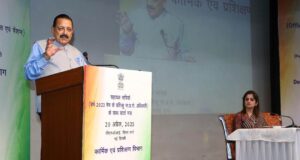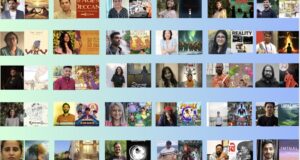Newdelhi:3/2/25:The support available to the languages notified as classical languages includes awards in Classical Languages, centers of excellence for studies in classical languages, and creation of professional chairs in central universities.
The Government of India had earlier notified the following languages as Classical Languages:
Tamil, 2004
Sanskrit, 2005
Telugu, 2008
Kannada, 2008
Malayalam, 2013
Odia, 2014
The Ministry of Education, through the Central Institute of Indian Languages (CIIL), Mysuru, works towards the promotion and development of all Indian languages, including Classical Languages. Various institutions and Centres of Excellence have been established to support research, documentation, and scholarly activities related to these languages:
Tamil: The Central Institute of Classical Tamil (CICT), Chennai, established in 2008, is dedicated to the promotion and development of Classical Tamil.
Sanskrit: The Government of India promotes Sanskrit through three Central Universities—Central Sanskrit University (New Delhi), Shri Lal Bahadur Shastri National Sanskrit University (New Delhi), and National Sanskrit University (Tirupati). These universities were granted Central University status in 2020 to strengthen Sanskrit education and research.
Telugu: The Centre of Excellence for Studies under the Classical Telugu functions at Nellore, Andhra Pradesh.
Kannada: The Centre of Excellence for Studies in Classical Kannada is located in Mysuru, Karnataka.
Malayalam: The Centre of Excellence for Studies in Classical Malayalam operates from Tirur, Malappuram, Kerala.
Odia: The Centre of Excellence for Studies in Classical Odia is based in Bhubaneswar, Odisha.
Furthermore, very recently, The Government notified 5 more languages such as Marathi, Pali, Prakrit, Assamese, and Bengali as Classical Languages vide Gazette Notification dated 04.10.2024.
This information was given by Union Minister for Culture and Tourism Shri Gajendra Singh Shekhawat in a written reply in Lok Sabha today.
 Odisha news today, Latest Oriya News Bhubaneswar Online Odia news Portal
Odisha news today, Latest Oriya News Bhubaneswar Online Odia news Portal




